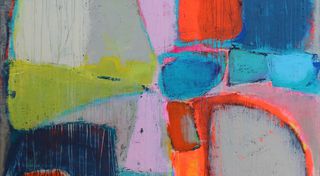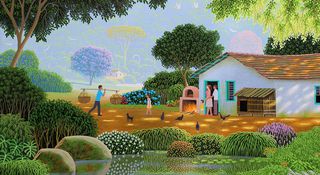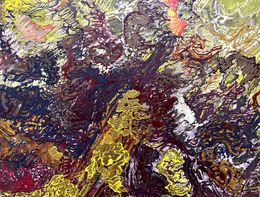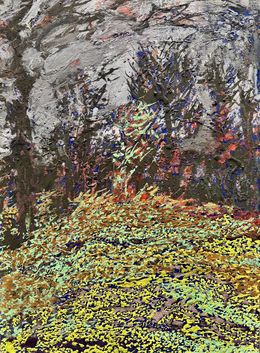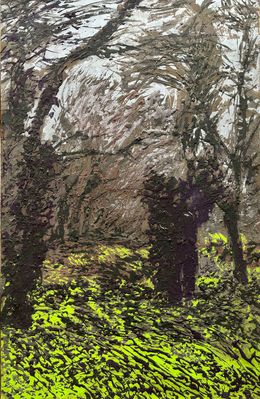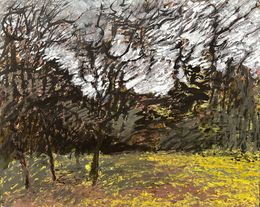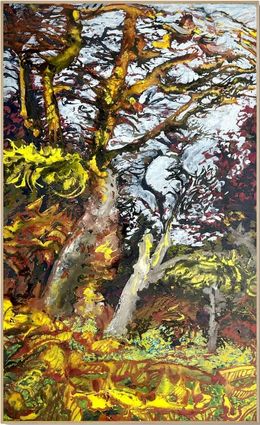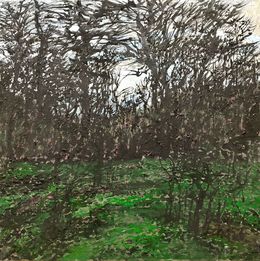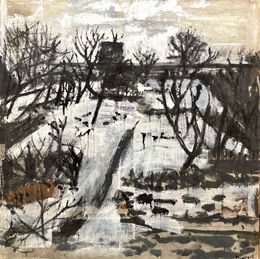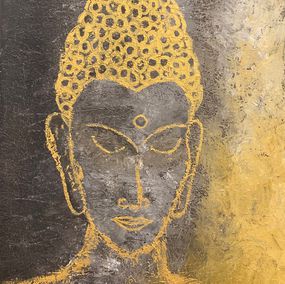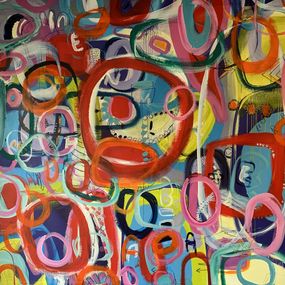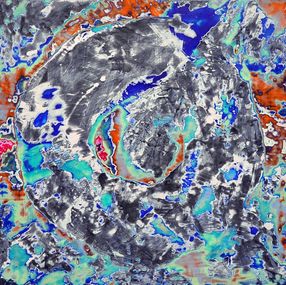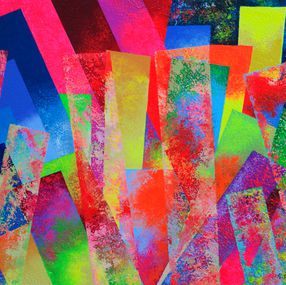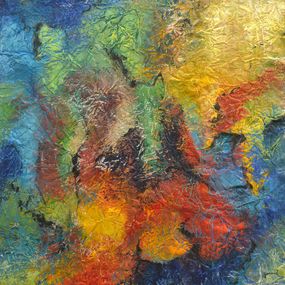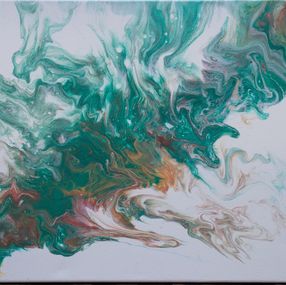
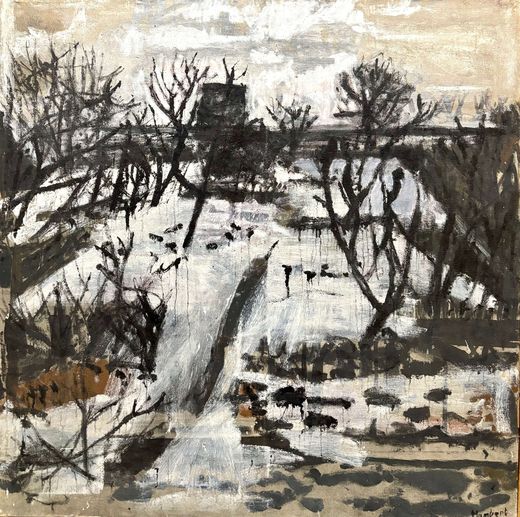
Raymond Humbert was a painter of life, a careful observer of the landscapes he traversed. With his vivid lines and intense colors, he was able to imbue nature with palpable energy.
Biography
Raymond Humbert, born May 23, 1932 in Verdun and died September 24, 1990 in Auxerre, is a French painter whose work is distinguished by vibrant landscapes and an unparalleled commitment to popular art.
After studying at the École nationale des arts décoratifs in Paris (1951-1953), he joined the École nationale supérieure des beaux-arts in Paris, where he attended the studio of Maurice Brianchon. In 1958, he won the first Grand Prix de Rome in painting, which allowed him to stay at the Villa Medici under the direction of Balthus.
From 1963 to 1973, Humbert taught at the École des Beaux-Arts in Orléans, before moving to Laduz, in the Yonne department, in 1969. He then became a professor, then director of the École des Beaux-Arts in Auxerre from 1973 to 1990. At the same time, in 1977 he founded the National Center for Action and Coordination of Popular Arts (CNCAP) in Laduz, which evolved in 1986 to become the Museum of Popular Arts, dedicated to the preservation of French rural and artisanal heritage.
His work is deeply influenced by nature, particularly the landscapes of Laduz and the Breton coast of Porspoder, which he discovered in 1973. Humbert often paints outdoors to capture the movement and texture of natural elements. His style is characterized by a nervous and graphic line, reminiscent of Japanese prints, and a palette of vivid colors.
In addition to his artistic career, Raymond Humbert is the author of several books on traditional crafts and folk art, such as "Le Sabotier" (1979) and "Le Temps des artisans" (1980). His commitment to the transmission of artisanal knowledge and the promotion of everyday objects testifies to his deep admiration for the rural world and its traditions.
Today, his works are preserved in several French museums (Museum of Fine Arts of Quimper, Pau and Troyes).
